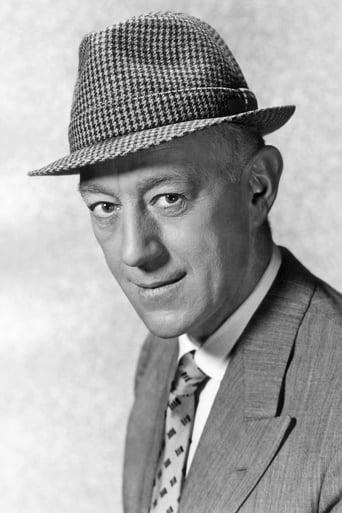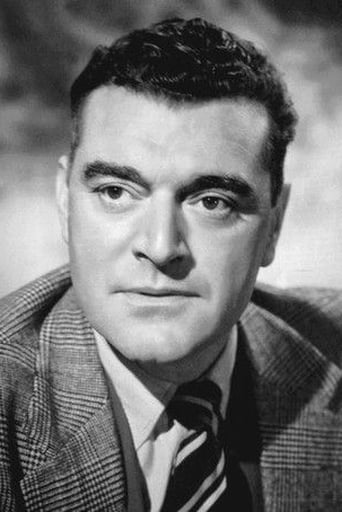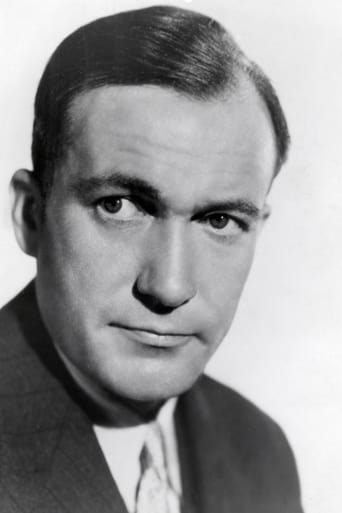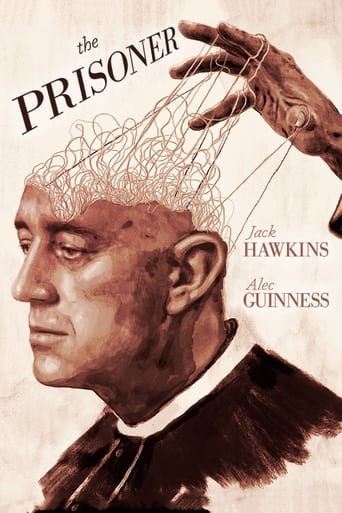
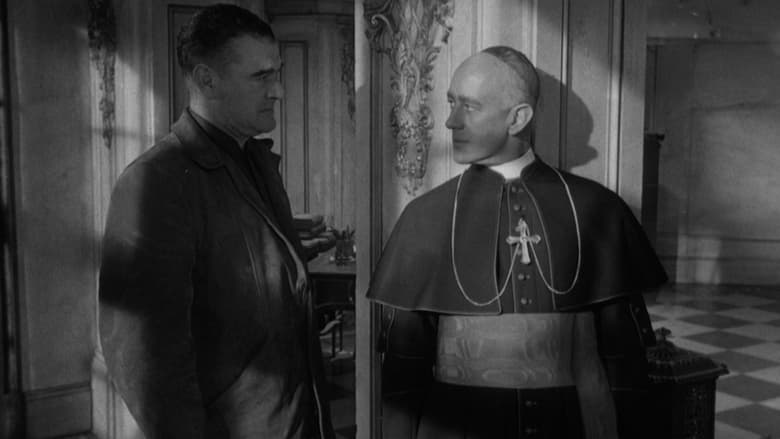
The Prisoner (1955)
A cardinal is arrested for treason against the state. He is a popular hero of his people, for his resistance against the Nazis during the war and his resistance when his country again fell to a totalitarian conqueror. In prison, his interrogator is determined to extract a confession of guilt, and thus destroy his power over his people.
Watch Trailer
Cast
Reviews
Powerful
Overrated
Brilliant and touching
A great movie, one of the best of this year. There was a bit of confusion at one point in the plot, but nothing serious.
****SPOILERS*** Brought up on charges of treason against the state the Cardinal, Alec Guinness, of an Eastern European communist nation is put through the ringer by his Interrogator, Jack Hawkins, in order to get him to confess to his so-called crimes. The Cardinal who's an old hand at being tortured by the German Gestapo during WWII takes it all in stride not caring what is done to his body but when the Interrogator starts to work on his mind and his life as a young boy in the city fish market he strikes a raw nerve with the Cardinal.The Cardinal has done some bad things, like sticking his hand in the cookie jar, in the past before he became religious and it's his former comrade in arms, against the Nazis, in WWII, the Interrogator who brings those events out into the open. It takes some three months for the Interrogator to get the Cardinal to crack with days of sleep deprivation and weeks of isolation but in the end the Cardinal finally gives in to all of his demands.***SPOILERS*** At his trial the Cardinal confesses to everything, even the Lincoln and Julius Cesar assassinations, under the sun in an open court with those in attendance, mostly the Cardinal's supporters, open mouthed and shocked by his many false and mindless confessions. It didn't take long for the smug with victory Interrogator to realize that all his efforts in getting the Cardinal to confess backfired in his face! The vary fact that the Cardinal so eagerly confessed to all if not even more of the crimes that he was accused of by the state showed the people that he was just playing along with his captors and in fact showing them up for the brutish thugs whom they are. With his conviction thrown out and confessions shown to be total lies and BS it's the Cardinal who in fact got the last laugh not the Interrogator and his superiors. And with that the Cardinal walks out free as a bird or cardinal from prison to the cheers of all the people who were tried to be made out, by the Interrogator, that he betrayed!
It is difficult to understand why the producers thought that this talky snail pace drama was more appropriate to the cinema than TV.Didn't cinemas already have enough problems without screening this hall clearing feature.In fact the only reason that I watched it was to see one of my favourite actors,Wilfred Lawson.there sure enough he was acting his socks off whilst Alec Guiness was doing his silent bit.He lights up every scene he appears in.He has this funny knack of starting each sentence on a high note and working his way down.As for the rest of the film,sorry to say it is a total bore.Jack Hawkins was always watchable but Alec Guiness I find a little of him goes a long way.Guiness is not necessarily good for you.
Inspired by the plight of Catholic Cardinal Josef Mindszenty behind the Iron Curtain – already the subject of a worthwhile low-budget Hollywood film, GUILTY OF TREASON (1950; see above) – this prestigious British production (based on a Bridget Boland play, who adapts her own work for the screen) boasts two powerhouse performances by Alec Guinness (as the proud Prince of the Church) and Jack Hawkins (as the wily Interrogator). Their interaction is a beauty to behold and one cannot help but be reminded how these formidable actors had already worked together in, curiously enough, MALTA STORY (1953) and, of course, would go on to do so again under David Lean's Oscar-winning direction in THE BRIDGE ON THE RIVER KWAI (1957) and LAWRENCE OF ARABIA (1962). Although much of the running time is devoted to their rigorous one-on-one sessions (enough for it to be deemed a two-hander), the film allows (at least) another fine actor to shine: Wilfred Lawson as Guinness' jailer who grows to respect his prisoner with time. The small cast also includes Kenneth Griffith as Hawkins' eager-to-learn subordinate – incidentally, the latter also appeared in two episodes of Patrick McGoohan's later cult TV series of the same name but which bore no relation to this movie! – and Raymond Huntley as Hawkins' impatient superior. Conversely, the romantic subplot between doubting Communist Ronald Lewis and his Catholic girlfriend Jeanette Sterke seems forced and intrusive – almost like an afterthought (whereas it had been far more effectively handled in the aforementioned Hollywood treatment). But, as I said before, the film's trump card is its gradual depiction of the evolving relationship between the two leads, which really has no equivalent in GUILTY OF TREASON (where Charles Bickford's tormentors were various and generally shrouded in darkness). Although the main characters and the setting remain unnamed throughout (lending it a pretentious air of political allegory also missing from the earlier film), the controversial subject of THE PRISONER got it banned from participating in both the Cannes and Venice Film Festivals – although it did get nominated for 5 BAFTAs and, eventually, won a couple of other international awards.
Alec Guinness got to repeat one of the roles he did on the London stage with the screen adaption of Bridget Boland's The Prisoner which was directed by Peter Glenville who also did the original stage production. It was one of Guinness's personal favorites among his parts because of the Catholicism of the actor.In fact the role really hit close, maybe too close to home, because like the character he plays in the film, Guinness was a child of a prostitute mother who escaped into acting as a refuge from a really bad childhood. Just as his character the Cardinal of an unnamed Balkan country now ruled by a Marxist dictatorship went into the church as a way of rising above the station he was born in life. Jack Hawkins plays the state inquisitor, a psychologist by training who probes and finds the weakness in Guinness and uses it to get a confession of treason out of him. Pride and vanity are the trickiest of human sins, we're all guilty of it in one way or another. In making this film Guinness, Boland, and Glenville were all adamant about keeping the main character Catholic and not some Christian preacher of an unnamed denomination as what the producers originally wanted to do, the better for a broader appeal they reasoned. Catholicism and the special burdens and duties it places on its clergy is precisely what makes the story valid.According to a recent biography of Alec Guinness though it was never going to be anyone else but him in the role of the Cardinal, Noel Willman had done the inquisitor part on stage. Several people like John Gielgud and Peter Bull were considered for that part before Hawkins was signed for the role.If the subject matter does seem familiar, the role is obviously modeled on Josef Cardinal Mindszenty of Hungary. And director Peter Glenville would have his greatest screen triumph in Becket, the story of another troublesome priest several centuries earlier.Guinness does lay bare his soul in this film. For fans of Alec Guinness this film is a must.
